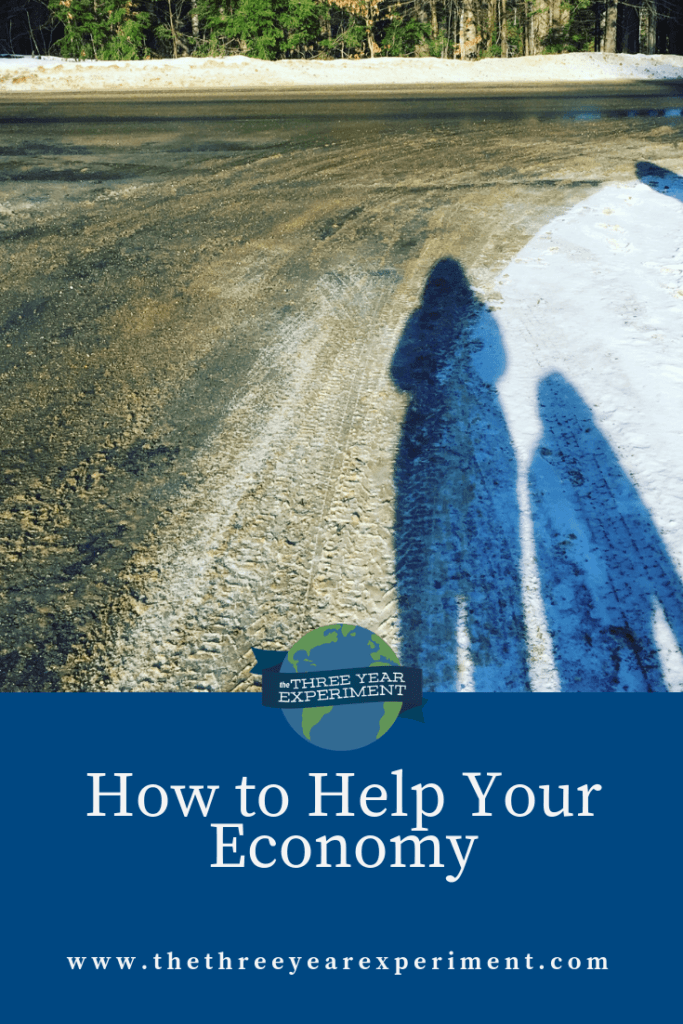Over the last several years, household debt across the world has been slowly increasing. That debt includes mortgages, car loans, and credit card debt. China’s household debt now stands at 49.1% of GDP, relatively low compared to many developed nations, but worrisome because of its 30 percentage point increase in the last decade. Shockingly, Switzerland leads the world with household debt at 127.5% of Gross Domestic Product. That means, for every $100,000 of GDP a household produces, they hold $127,500 in debt!
The average citizen in Switzerland, which has traditionally been an extremely wealthy country, has substantial assets (net worth) underpinning this debt, or at least four times more assets than the average American.
Even so, Switzerland, as well as nine other economies including Canada, Finland, and Australia, have debt levels that are high and rising quickly, at a pace that mirrors that of the US right before the housing bubble.

What’s the problem with all of this debt (as if we didn’t know)? The WSJ explains:
“The IMF says a five percentage-point increase in household debt over a three-year period is associated with a hit to GDP growth of 1.25 percentage points three years down the road. The historical record suggests that large debts lead to a short-term economic boost but long-term struggles, as a greater share of the economy’s resources go to servicing the spending binge associated with high debts. The IMF also finds rising household debts are associated with greater risks of banking crashes and financial crisis.”
The financial news has recently contained articles about how economies can prepare for a global downturn, for a period of retracted decline.
While the US household debt levels are high, at just under 80% of GDP, they’re steady, growing less than 1% a year.
So, if you’re from the US and reading this, why should you care?
Because it’s a global world, and it looks like Americans’ propensity to take on debt to spur economic growth (remember those post 9/11 years?:”I’m going to help the economy by going shopping!”) is spreading. While it’s unlikely that a housing crash in one of the smaller ten debt-crazed nations will affect the global housing market, you’d better believe that more collective debt around the world will eventually affect global markets.
But how can we, as individuals, do much to change the wave of love-of-debt in the face of what might seem like overwhelming marketing and propaganda in its favor? (“Buy a house! It’s a smart economic move! If you can’t afford it, just borrow a lot of money! You’ll make it back!”).
As personal finance bloggers, I think we have a responsibility to keep talking about the dangers of debt.
As personal finance blog readers, I believe we should live a life of fiscal responsibility.
Humans are social creatures. We respond to our social environments and act accordingly. For example, when Mr. ThreeYear and I lived in Atlanta, and we rode past and worked with people buying ridiculously expensive and unnecessary cars (Hummers) to sit in traffic for an hour on their way to work, we were affected by that. Shouldn’t we have nice cars, too? That was what was socially acceptable. It’s no wonder we drove European-made BMWs and Audis as well as Acuras while we lived there.
Once we moved to the more fiscally prudent Northeast, with its famously frugal New Englanders, we traded down to practical, reliable gas-sippers. We traded the high-end Honda Acuras for a low-end but reliable Honda Accord. We bought a plug-in Prius and enjoyed the $500 cash incentive that Mr. ThreeYear’s employer gave us for buying an environmentally responsible car.
So how do we, as individuals, affect change in this world of rampant debt?
Get Rid of Your Debt
If you currently have a lot of debt, pay it off. The debt load of every single household affects the stability of our global economy.
It’s a bit like the vaccination rate. If more than 80% of a population is vaccinated, the entire population is safer. So, too, with the household debt rate.
But how do you pay off your debt? Ah, never fear! I’ve got several articles right here about how we paid off everything but our fifteen-year mortgage:
- The Average Joe’s Ultimate Guide to Getting Out of Debt
- How Do I Get Ahead if I’m Not a Mega-Saver or Super Frugal?
- Freedom from Payments
Save
Save more. Save for a rainy day. Save in an emergency fund. Don’t live on the edge of your income. Instead, back up your standard of living a bit so you have some extra.
This might mean learning (slowly, over time, because it takes time to change a habit) not to eat out and instead preparing your food at home. Our family spent the entirety of 2018 getting better at grocery store spending. Our goal was to shave a modest 20% off what we spent each and every month. We hit our goal, and at the end of the year, we’d saved over $2400 on groceries from the year before.

Here are several posts about how to save more:
Question the “Experts”
When you read mainstream articles about the absolute wisdom of buying a house, or “treating yourself” to stuff you can’t afford, take a minute and think about why these people are writing. A lot of times, it’s to sell you something. Many writers are employed by organizations with an economic interest in having you do something, like buy a house. Instead, read articles with different points of view and calculators! so you can do the math and figure out what’s smarter your own self.

Here are two great columns with links to calculators about renting versus buying:
- Why Your Home Is a Lousy Investment When You Think It’s Great
- 401K Savings or Buying a Home? What to Prioritize?
But don’t take this guy’s word for it! Do your own research, and before you lock yourself in to a long, expensive, difficult purchase, like a home or a car, THINK ABOUT IT!
When we moved, we thought long and hard about where to live, because we knew we’d be in our house for more than a decade. Once you’re locked into a home mortgage, you’re locked in! Homes are illiquid, not easily sold, and expensive to buy and sell.

Share the Wealth
The wealth of your wisdom, that is. Once you’ve gotten yourself to a financial place where you’re saving a large chunk of your income and have gotten rid of debt, share that amazing feeling with your friends (a little bit at a time). “Man, it feels great to own my car outright!” “College is expensive, but I feel good about how much we’ve saved so far” (That will open the conversation floodgates). “We’re thinking of downsizing our house.” (That, too, especially if you still have kids at home).
Don’t be preachy, because nobody likes to be told what to do. But if you can share the feelings of freedom associated with your newfound debt-freedom or that come from saving a large portion of your income, gently work that into the conversation.
And if you’re in the middle of paying off debt or getting your financial house in order, share that, too. “We’re working on paying off our debt. Man, I can’t wait to have that credit card debt paid off! It’s going to feel so incredible!”
As a society, we need to talk more about money. It’s taboo, and nobody likes to do it, but the debt levels that households are taking on are unsustainable, and for the good of our global economy and future generations, we need to start the conversation about sound household money management.
What about you? Have you had any positive (or negative) conversations about financial health with your neighbors or friends? How did they go?
This post was originally published in early 2018. It has been completely revised for this year.



Wow, Laurie. Great post! What a coincidence that I’ve just posted an article (This Year, Become Debt Free — http://www.kuboriches.com/this-year-become-debt-free) about the consequences of being in debt and how it should be rid of as soon as possible. Thank you for this nice piece. And I really do like your writing.